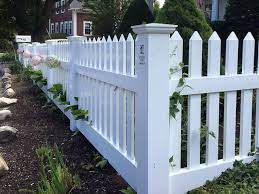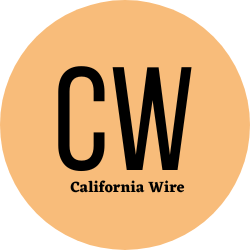Safety Features of a Residential Vinyl Fence
by siteadmin

Safety Features of a Residential Vinyl Fence
A residential fence is an important investment for your home and helps to keep family members safe. Unlike metal or certain types of wood fences, vinyl does not have any hardware that can cause injury when children play.
Another safety feature is that vinyl fences do not rust and are fire-resistant. They also have a high burn temperature, making them self-extinguishing.
Safety
Many safety features are built into vinyl fences to help you feel good about letting your children and pets play outside. For example, these fences don’t splinter or contain any sharp edges that could cause injuries. Similarly, they don’t contain any chemicals that might be toxic to your animals or children if they chew on them.
Unlike wood fences, vinyl doesn’t rot or become infested with termites. The material also resists fire and is considered self-extinguishing. This is especially important if you live in an area that is prone to wildfires. In addition, vinyl is an environmentally friendly choice that helps to conserve the dwindling supply of trees used for wood fencing.
Another way that vinyl fence in NJ are a safe choice is because they don’t have any rusty metal parts or exposed screws and nails. This makes them a great option for families with small children, as they will be less likely to get injured by these objects. Vinyl fences also have a smooth surface, so they won’t hurt your children or pets if they fall against them.
While many types of fences require maintenance, vinyl fencing is exceptionally easy to clean. Most of the time, you can simply spray it with a hose and rinse it off. It’s best to use a low pressure setting and cover any plants or objects near the fence to avoid damage.
Vinyl is also very durable and doesn’t rust or corrode like other fencing materials. It’s also resistant to sunlight, making it a great choice for areas with harsh sun exposure. Most modern vinyl fence in NJ are also protected with titanium dioxide, which provides a UV shield that keeps the fence looking new.
Finally, vinyl is a great option for horses because it’s flexible and can be adjusted at a moment’s notice. In contrast, concrete and wooden fences are rigid and may injure a horse if it attempts to break through them. In addition, vinyl can flex to soften the blow of a horse’s front hooves, so it’s unlikely that they will be seriously injured by trying to break through the barrier.
Durability
If you’re looking for a fence that is durable enough to stand up to a beating, vinyl is a solid option. Unlike wood, vinyl does not break down due to rust or decomposition. It’s also very flexible and can withstand a lot of pressure. This makes it a great choice for areas that experience heavy winds and rough weather.
It’s easy to clean a vinyl fence, and you can typically use pure water to wash it. It’s also nonporous, which means that it will not absorb any dirt or staining liquids. This is a great benefit for homeowners who have children or pets, as it eliminates the need for using chemicals that may damage the environment or their skin. In addition, vinyl is very sturdy and does not splinter or have any sharp edges that could be harmful to pets or kids.
Another feature of vinyl fencing is that it is resistant to fire. It does not spread flames the way that wooden and metal fences do, which can be a life-saving safety feature for your family. Vinyl is also highly resistant to direct impact, which makes it an excellent choice for backyard play zones.
Additionally, vinyl can withstand high levels of moisture. It’s not as prone to swelling and warping like wood or aluminum, making it a better choice for homeowners who live in a humid climate.
Vinyl is also a great choice for homes with swimming pools. While it will not hold up to constant exposure to chlorine, the salt used in pool chemicals will not affect the integrity of vinyl. It’s also resistant to UV rays, which can damage other types of fencing materials.
Another benefit of vinyl is that it lasts longer than other fencing options. This can save you money in the long run because you’ll spend less time maintaining your fence and replacing its parts. In addition, vinyl is backed by a limited lifetime warranty, so you can feel confident that it’s a durable choice for your home.
Flexibility
Vinyl fence in NJ can be fabricated in various colors and styles. This allows homeowners to find a style that will match their home and neighborhood. Because they do not need to be painted or stained, they are a safe choice for families with children and pets who do not want to use chemical cleaners and other products on their property.
Another feature of vinyl fencing is that it is highly flexible and can stand up to a great deal of pressure. This is a major benefit for families with children, because it means that they will not be harmed by the sharp edges and points of hardware that can be found on certain types of traditional fences. This makes vinyl a good choice for people who live in areas where there are frequent strong wind gusts.
Because they are so flexible, vinyl fences can also be used to contain livestock and other large animals. This is a great advantage for people who live in rural areas where they may need to keep their livestock contained. Additionally, it can be useful for those who live near the coast or other bodies of water where it is possible that salt spray might damage other types of fences.
One of the most important safety features of vinyl fence is that it does not emit volatile organic compounds, or VOCs. These chemicals can be harmful to human and animal health, and they can also pollute the air. Because vinyl is made of a synthetic material, it does not produce VOCs. It is also safe to use around children, because it does not produce splinters.
While there are some situations where vinyl cannot be used, such as parking lots and extremely hot climates, it is a good choice for most homes. It can withstand heavy loads, including those from lawn mowers and tree limbs. It is also resistant to rusting and crimping.
Additionally, it is easy to clean and maintain a vinyl fence. All that is required is a simple rinse with a hose. In most cases, this is enough to remove stains from the surface of the fence. If a deeper clean is needed, it can be done using bleach water and a brush. This eliminates the need for chemical cleaners, which can be dangerous for families with young children and pets.
Maintenance
Unlike wood fences, vinyl does not fade in the sun or stain from water. It does not rust either and is easy to wipe clean. This means that a homeowner doesn’t have to spend hours sanding, painting and staining their fence to keep it looking great and keeping the children and pets away from its sharp edges and metal screws and rivets.
The material also does not splinter, which is good news for pet owners who worry about their animals chewing on the fencing. And because the pieces of the fence are prefabricated, installing it is quick and simple. The only thing you have to do is use the garden hose and spray it down occasionally, if needed.
Like any other building material, vinyl does require some maintenance, but it requires significantly less than wooden fences. With a little regular upkeep, your vinyl fence can continue to look brand-new for years.
You should wash your vinyl fence every two or three months with a mild cleaning solution and a soft cloth or sponge. Avoid abrasive cleaners, as they will erode the surface of your vinyl fence. Instead, try an eco-friendly or nontoxic cleaning solution such as white vinegar that kills a plethora of pathogens (including Salmonella and flu viruses).
In addition to washing your vinyl fence, you should regularly check its gate latches. If the latches are broken, the gates cannot close properly, and this can pose a danger to anyone who is using them. You should also check the latches on any gates you have that are used for swimming pools or by children, as a child could fall through if the gate is not closed.
Other routine maintenance tasks you should do include checking the screws and hinges on your vinyl fence. You should lubricate the hinges periodically to ensure they don’t become loose or stuck in place, and you should replace any broken ones immediately. In addition, you should also look for weeds and grass that are growing too closely to the fence. They can cause damage to the fence if they are pulled or mowed by a lawn mower, so it’s important to weed and mow carefully around your vinyl fence.
Safety Features of a Residential Vinyl Fence A residential fence is an important investment for your home and helps to keep family members safe. Unlike metal or certain types of wood fences, vinyl does not have any hardware that can cause injury when children play. Another safety feature is that vinyl fences do not rust…
Recent Posts
- The Septic Guys – The Go To For Septic Pumping Fresno
- Expert Cleaners Lexington: Setting New Standards in Quality Assurance and Flexibility
- Professional Scottsdale Landscaping Offers Expert Yard Clean-up Services in Phoenix
- RISE Nutrition & Wellness: Transforming Lives through Online Macro Coaching
- Best Irvine Movers: Your Trusted Local Moving Service in Irvine
